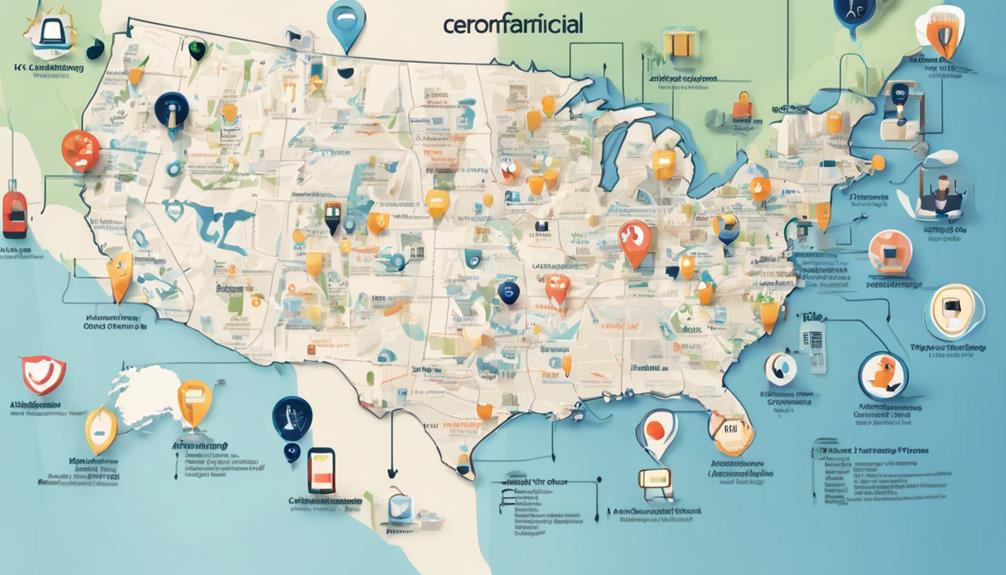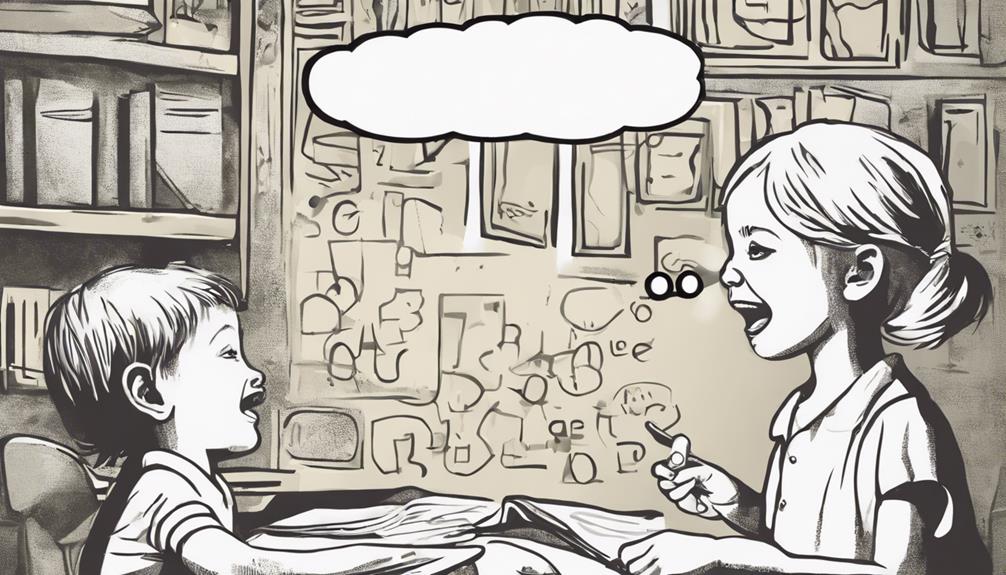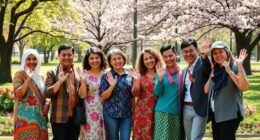Ever wondered where to find the crème de la crème of online Deaf and Hard of Hearing credential programs in California?
Well, look no further as we uncover the key players in this educational realm.
From the innovative approaches at California State University, Fresno, to the unique bilingual/bicultural emphasis and support for individualized programs, these programs are shaping the future of Deaf Education.
Stay tuned to discover how these programs are making a significant impact in the field and paving the way for a more inclusive educational landscape.
Key Takeaways
- Online programs at CSU Fresno offer specialized training in Deaf Education with emphasis on bilingual/bicultural approaches.
- Career opportunities include roles as special education teachers supporting DHH students in language and communication skills.
- Programs prioritize ASL proficiency, providing a holistic approach to Deaf Education in inclusive settings.
- Generous education grants totaling $1.25 million over 5 years support 55 graduate scholars in California.
Deaf Education Graduate Program
We're excited to introduce the Deaf Education Graduate Program at CSU Fresno, a 36-unit online program accredited by the Council on Education of the Deaf. This program is tailored for individuals passionate about Deaf Education and supporting Deaf/Hard of Hearing students. The emphasis on a bilingual/bicultural approach sets us apart, ensuring graduates are equipped with the necessary skills to excel in this field.
Students admitted to our program from Fall 2020 onwards will delve into a comprehensive curriculum focusing on Deaf Education. Through our partnership with the Kremen School of Education, we encourage students to pursue a master's degree along with a teaching credential, paving the way for a fulfilling career in this specialized area. Communication competence in American Sign Language is a core requirement, underlining our commitment to preparing educators who can effectively connect with Deaf/Hard of Hearing individuals.
With distinguished faculty members like Ellen Schneiderman and Rachel Friedman Narr, who are experts in Deaf Education, students receive unparalleled support and guidance, setting them up for success in the dynamic field of Deaf Education.
Deaf & Hard of Hearing Credential
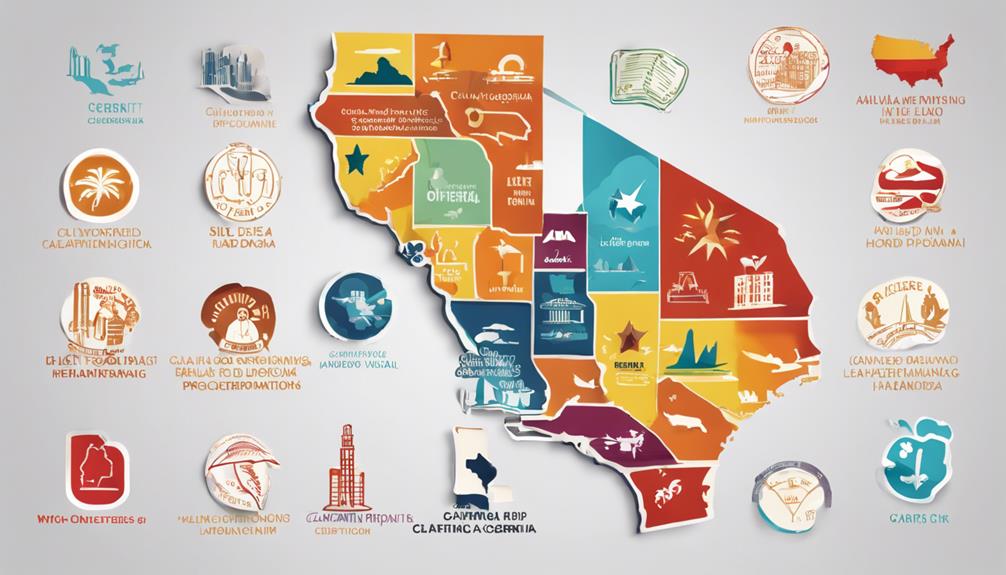
As we consider the Deaf & Hard of Hearing Credential program in California, it's essential to understand the training requirements and the career opportunities it offers.
This specialized program equips educators with the skills needed to support students with hearing impairments through coursework in American Sign Language and Deaf Education.
Graduates can pursue a Preliminary or Clear Teaching Credential in Deaf/Hard of Hearing, opening doors to impactful careers in the field.
Training Requirements
During the Deaf and Hard of Hearing (DHH) Credential program in California, educators undergo specialized training that includes coursework in DHH specialization, ASL proficiency, and subject matter qualifications. Candidates are required to complete internships or student teaching to gain practical experience working with DHH students.
The program emphasizes bilingual/bicultural approaches and individualized placement strategies tailored to the needs of DHH learners. Successful completion of the training leads to the attainment of a Preliminary DHH Credential in California.
This comprehensive preparation equips educators with the necessary skills and knowledge to support DHH students effectively in educational settings. The emphasis on ASL proficiency ensures that educators can communicate fluently with their students, fostering a more inclusive and supportive learning environment.
Career Opportunities
Exploring career opportunities with a Deaf and Hard of Hearing Credential opens doors to impactful roles as special education teachers in various educational settings. With this credential, individuals can work in inclusive classrooms, resource specialist programs, or designated DHH programs.
The ability to support DHH students in developing language and communication skills, academic achievement, and social integration is key to these roles. Professionals with this credential may find themselves collaborating with speech-language pathologists, audiologists, and other specialists to create comprehensive educational plans for DHH students.
Working in both public and private educational settings allows for a diverse range of experiences and the chance to make a significant difference in the lives of students with unique needs.
Special Education: Deaf & Hard of Hearing
When it comes to special education for the Deaf and Hard of Hearing, we focus on teaching communication strategies and implementing adaptive technology to enhance learning experiences.
These approaches help bridge the gap and create a supportive environment for students facing hearing challenges.
Teaching Communication Strategies
In preparing educators for working with students who are deaf and hard of hearing, our program prioritizes the development of tailored communication strategies that promote inclusive environments and support individual needs effectively.
- Sign Language Proficiency: Emphasis on mastering sign language to enhance communication.
- Adaptive Communication Skills: Teaching various strategies to address diverse communication needs.
- Inclusive Environment Creation: Focusing on building environments that support all students.
- Individualized Support: Providing personalized assistance to meet specific student requirements.
Through specialized coursework in communication approaches and assistive technologies, our graduates are well-equipped to teach and empower students with hearing loss effectively. Our commitment to innovative teaching methods ensures that educators can make a meaningful difference in the lives of students with hearing impairments.
Implementing Adaptive Technology
Implementing adaptive technology for students in Special Education who are Deaf and Hard of Hearing involves integrating tools like FM systems, cochlear implants, and captioning services to enhance communication and accessibility. As specialists in this field, we understand the crucial role adaptive technology plays in facilitating language development and academic success for DHH learners.
These innovative tools not only improve speech perception but also create a more inclusive learning environment. Educators and students require specialized training and ongoing support to effectively utilize adaptive technology in educational settings.
Preliminary Education Specialist Credential
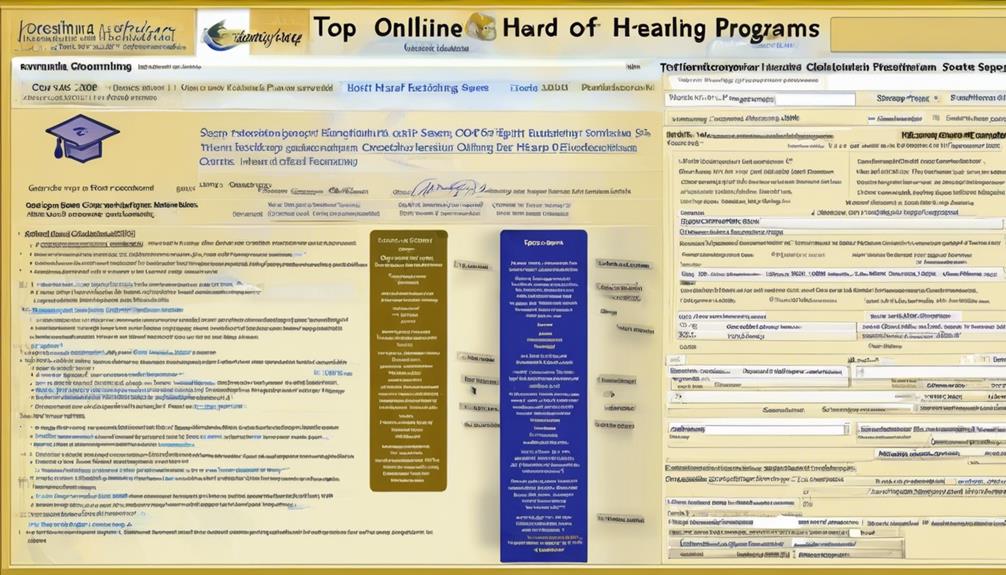
Throughout the Preliminary Education Specialist Credential program in Deaf/Hard of Hearing in California, candidates engage in a comprehensive 49-unit curriculum aimed at equipping them with the necessary skills and knowledge for supporting students with hearing impairments. The program includes supervised fieldwork practica and a requirement to pass the American Sign Language Proficiency Interview, ensuring educators are proficient in sign language to effectively communicate with hard of hearing students.
- Focused Curriculum: The 49-unit program covers a wide range of topics essential for understanding and addressing the needs of students with hearing impairments.
- Hands-On Experience: Candidates gain practical experience through supervised fieldwork practica, applying their learning in real-world educational settings.
- ASL Proficiency: Passing the ASL Proficiency Interview is a crucial component, ensuring educators have the necessary language skills to interact effectively with hard of hearing students.
- Comprehensive Assessment: The program evaluates candidates based on specific criteria to ensure they meet the standards required to support students with hearing impairments effectively.
Education Specialist Credential Program

The Education Specialist Credential Program at California State University, Fresno equips aspiring educators with specialized training to support Deaf and Hard of Hearing (DHH) students. This program offers a comprehensive curriculum that combines Special Education coursework with a focus on Deaf/Hard of Hearing specialization, ensuring teachers are well-prepared to cater to the unique needs of this student population.
Students in the program have the option to choose between a Traditional Program or an Intern Program, allowing them to tailor their learning experience based on their current teaching status and career objectives. To successfully complete the program, students must fulfill specific course requirements, engage in fieldwork experiences, and demonstrate proficiency in American Sign Language through the ASL Proficiency Interview.
Graduates of this program earn a Preliminary Education Specialist Credential in Deaf/Hard of Hearing, qualifying them to work effectively with students who have hearing loss. The Education Specialist Credential Program at California State University, Fresno stands out as a valuable resource for teachers of Deaf and Hard of Hearing students, providing them with the necessary tools and knowledge for success in the field.
Deaf Studies Department
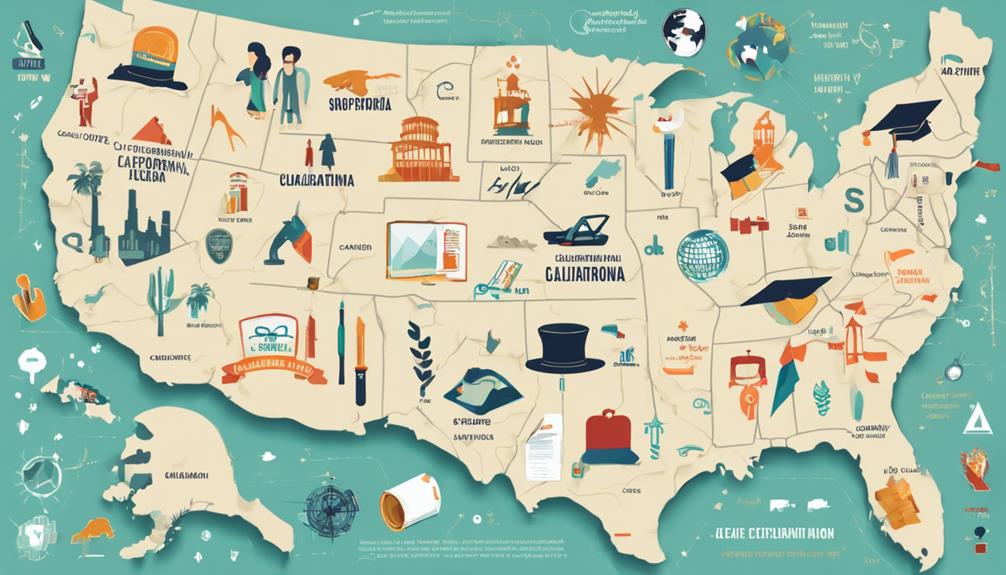
As educators aiming to enhance our understanding and practice in supporting Deaf and Hard of Hearing students, exploring the offerings of the Deaf Studies Department opens up valuable opportunities for specialized learning and growth. The Deaf Studies Department offers a 36-unit online Deaf Education program accredited by the Council on Education of the Deaf, focusing on bilingual/bicultural approaches and ASL proficiency.
Here are some key highlights of the program:
- Two enrollment options are available: DHH Student Teaching Option and DHH Intern Credential Option.
- The program includes specific CSDS courses tailored to Deaf Education.
- Completion of a teaching credential is encouraged through a partnership with the Kremen School of Education.
- Expert faculty members like Ellen Schneiderman and Rachel Friedman Narr provide support and expertise in Deaf Education, enriching the learning experience for students seeking to enhance their ASL proficiency and teaching skills.
Program Philosophy Overview

Highlighting the core principles guiding our program philosophy, we emphasize a holistic approach centered on fostering bilingual/bicultural education for Deaf and Hard of Hearing individuals. Our program is designed to cater to the unique needs of each student, offering individualized placement and programs to ensure their success. We advocate for a continuum of service options to address the diverse requirements within the Deaf and Hard of Hearing community. Communication is at the heart of our program, with a strong emphasis on American Sign Language competence for all participants. By promoting an understanding of various communication and educational approaches in the field, we strive to create a comprehensive educational experience for our students.
| Program Philosophy Highlights |
|---|
| Bilingual/Bicultural Education |
| Individualized Placement and Programs |
| Continuum of Service Options |
Our commitment to excellence in Deaf and Hard of Hearing education drives us to provide innovative and inclusive learning opportunities that empower our students to thrive.
American Sign Language Proficiency
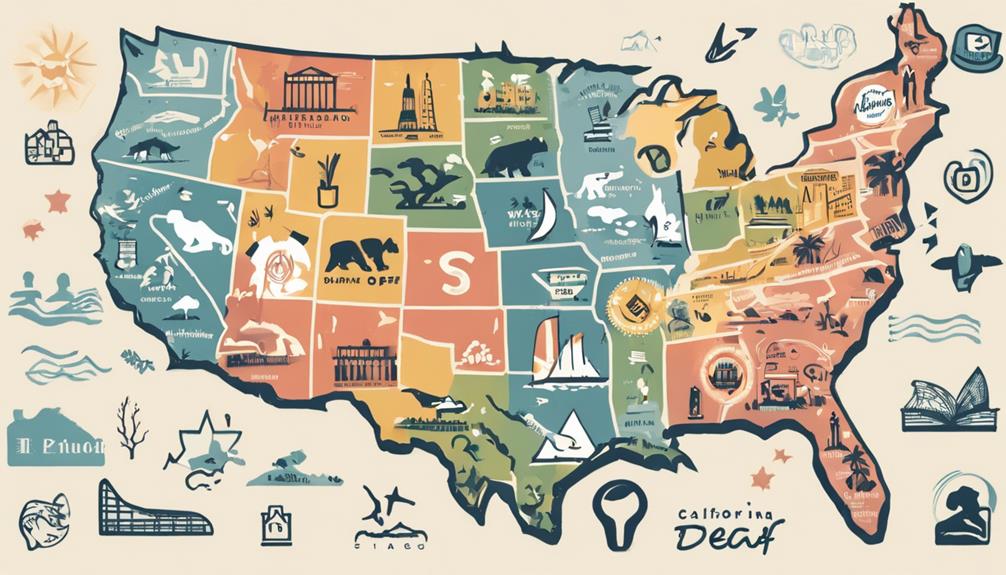
When it comes to American Sign Language Proficiency, understanding ASL Skill Assessment and Signing Proficiency Levels is crucial.
These aspects help us determine our proficiency in ASL and guide us in reaching higher levels of fluency.
Mastering these skills is essential for success in Deaf and Hard of Hearing Credential programs.
ASL Skill Assessment
Completing the ASL Skill Assessment is a crucial step for individuals pursuing the Deaf and Hard of Hearing Credential programs in California. The assessment evaluates proficiency in American Sign Language, adapted from the Language Proficiency Interview for ASL. Conducted through an interview format, it assesses knowledge and skills in ASL, helping determine language proficiency specifically in ASL.
Here are some key points to consider:
- Evaluation of ASL proficiency
- Adapted from the Language Proficiency Interview for ASL
- Conducted through an interview format
- Determines language proficiency specifically in ASL
This assessment is a vital component for those aiming to excel in the Deaf and Hard of Hearing Credential programs in California.
Signing Proficiency Levels
Assessing one's American Sign Language proficiency level is crucial for determining competency and eligibility for various programs and certifications.
The American Sign Language Proficiency Interview (ASLPI) serves as a standardized assessment tool specifically designed to evaluate signing proficiency. This evaluation method examines an individual's ability to comprehend and utilize American Sign Language effectively, focusing on linguistic aspects such as vocabulary, grammar, and fluency.
ASLPI scores range from 0 to 5, with 0 indicating a lack of signing ability and 5 reflecting a level of proficiency similar to that of a native signer. These results play a vital role in determining an individual's competency in ASL, influencing their access to specific programs or certifications related to hearing loss and signing proficiency.
Education Grant Information
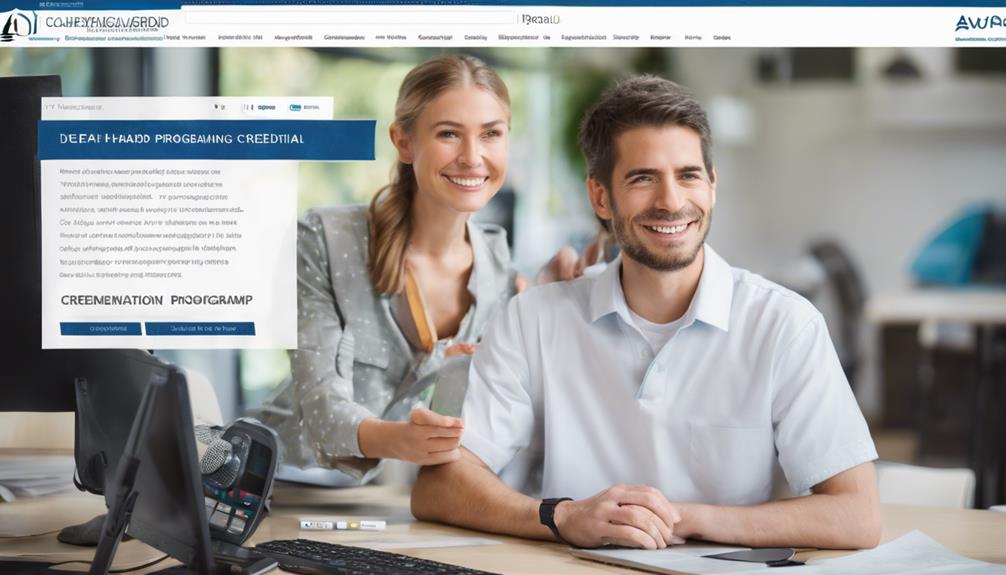
Contribute to your educational journey by exploring the Education Grant available for Deaf and Hard of Hearing credential programs in California. The Education Grant for Deaf and Hard of Hearing Credential programs in California amounts to $1.25 million over 5 years, funded by the U.S. Department of Education to support 55 graduate scholars with tuition assistance and curriculum enhancement.
Here are some key points about the grant:
- The grant aims to provide financial support for students pursuing their credentials in the field of Deaf and Hard of Hearing education.
- It assists in covering tuition costs and improving the educational experience for graduate scholars in the program.
- This grant is a significant source of financial aid for students in California seeking credentials in Deaf and Hard of Hearing education.
- It offers an opportunity for students to focus on their studies without the added financial burden, enhancing their learning experience and future opportunities in the field.
Program Requirements Details
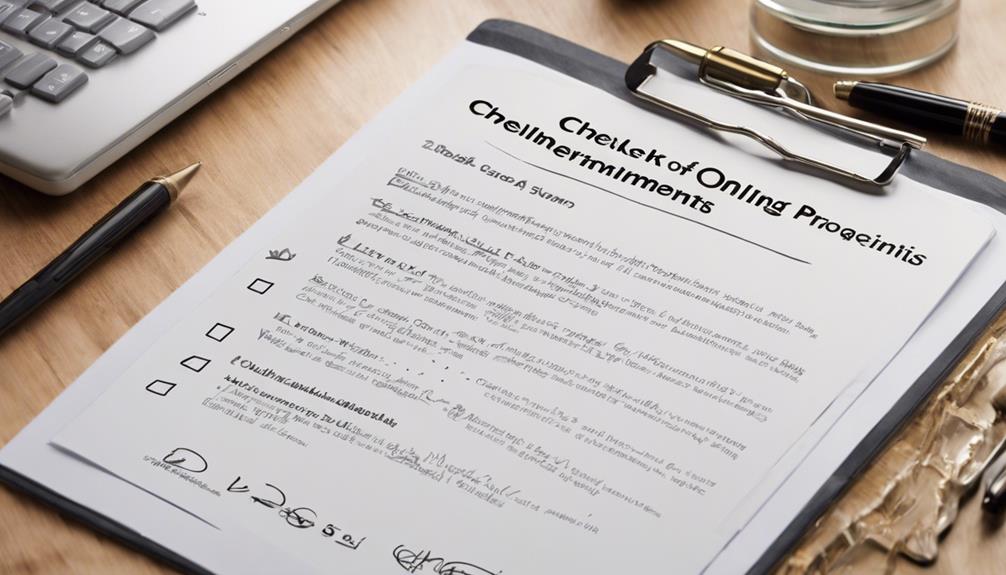
As prospective scholars, understanding the specific requirements for the Traditional and Intern Programs is crucial for navigating the path towards a teaching credential in Deaf and Hard of Hearing (DHH) education. The Traditional Program necessitates 49 units for completion, while the Intern Program requires 52 units to fulfill the credential requirements. Additionally, passage of the American Sign Language Proficiency Interview is mandatory for both programs. In the Traditional Program, there are 120 hours of preservice preparation included, offering a comprehensive foundation for aspiring educators. On the other hand, the Intern Program involves a minimum of 6 units per semester for on-the-job teachers, providing hands-on experience alongside coursework.
| Program | Required Units | ASL Proficiency | Preservice Preparation |
|---|---|---|---|
| Traditional Program | 49 units | Required | 120 hours |
| Intern Program | 52 units | Required | N/A |
Program Learning Outcomes
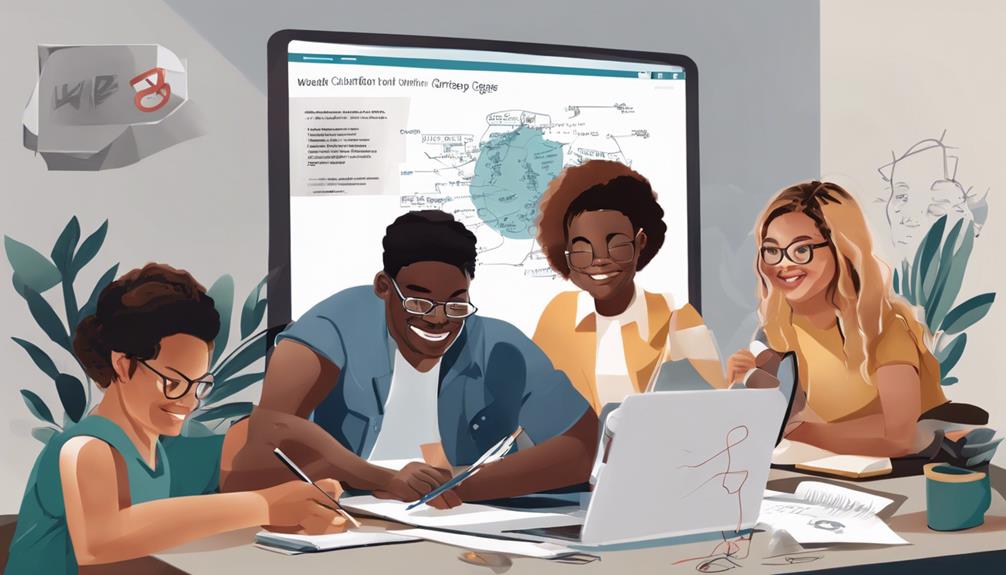
In our program, we focus on equipping students with the essential skills and knowledge needed to excel in teaching and supporting deaf and hard of hearing individuals. Our program learning outcomes include:
- Graduates demonstrate proficiency in American Sign Language and specialized instructional strategies for deaf and hard of hearing students.
- Students acquire the necessary skills to assess, plan, and implement individualized educational programs for students with hearing loss.
- Program participants develop a deep understanding of deaf culture, language development, and educational approaches for diverse learners.
- Graduates are prepared to promote inclusive practices, advocate for students, and collaborate effectively with families and educational teams.
Frequently Asked Questions
What Are the 2 Deaf Schools in California?
Sure!
There are two deaf schools in California: California School for the Deaf, Fremont (CSDF) and California School for the Deaf, Riverside (CSDR). Both schools provide educational programs for Deaf and Hard of Hearing students from preschool through high school. They focus on a bilingual approach to education, emphasizing American Sign Language (ASL) and English proficiency.
CSDF, established in 1860, is one of the oldest public schools for Deaf students in the U.S. CSDR offers a comprehensive educational experience tailored to the unique needs of Deaf and Hard of Hearing students.
What Is the Best School for the Hearing Impaired?
When looking for the best school for the hearing impaired, it's crucial to consider programs that offer comprehensive support and a focus on individualized learning.
California State University, Fresno stands out for its accredited Deaf Education program, emphasizing a bilingual/bicultural approach and communicative competence in American Sign Language.
Their faculty members provide expertise and encourage professional involvement, ensuring a well-rounded education for students.
Are There Online Teaching Credential Programs in California?
Yes, there are online teaching credential programs in California. These programs offer flexibility and convenience for aspiring educators. They provide training and virtual practicum experiences to prepare us for working with diverse student populations.
Graduates from accredited online programs meet the qualifications for obtaining teaching credentials. Pursuing an online teaching credential in California allows us to balance our education with other commitments while preparing for a rewarding career in education.
What Is the Most Popular Deaf School?
The most popular deaf school is the California School for the Deaf (CSD), with campuses in Fremont and Riverside. Known for its comprehensive programs from preschool to high school, CSD focuses on a bilingual/bicultural approach using American Sign Language (ASL) and English.
One fascinating statistic is CSD's long history of providing specialized services and experienced faculty, making it a top choice for deaf and hard of hearing education in California.
Conclusion
In conclusion, the online Deaf Education program at California State University, Fresno offers a comprehensive and accredited education for those seeking to work with Deaf and Hard of Hearing students.
One example of success is Sarah, who graduated from the program and now works as a Deaf Education teacher, making a positive impact in the lives of her students every day.
With a focus on bilingual/bicultural education and individualized support, this program prepares educators to make a difference in the lives of Deaf and Hard of Hearing individuals.

